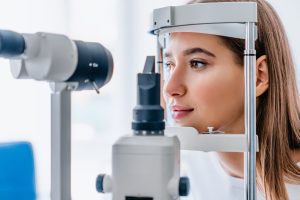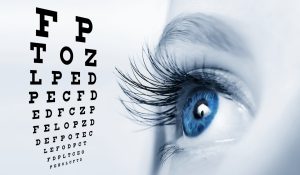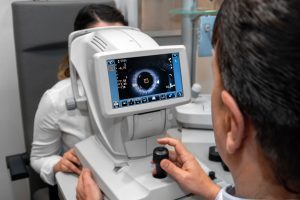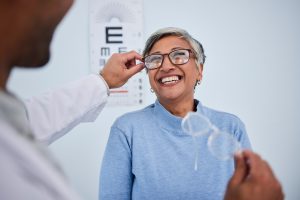What should I bring to my appointment with an optometrist in Edmonton?
Frequently Asked Questions
What should I bring to my appointment with an optometrist in Edmonton?
When preparing for your appointment with an optometrist in Edmonton, it’s important to gather the necessary items and information to ensure a productive visit. Here’s an improved version of the content:
To make the most of your eye appointment with an optometrist in Edmonton, please remember to bring the following items and information:
- Current glasses or contact lenses: If you wear glasses or contact lenses, it’s essential to bring them with you. Your optometrist may want to assess your current prescription or examine the condition of your existing eyewear.
- Medication list: Prepare a list of any medications, eye drops, or supplements you are currently taking. This includes both prescription and over-the-counter products. These details help your optometrist better understand your overall health and how it may relate to your eye care.
- Alberta health care number and insurance information: Please have your Alberta health care number readily available. Additionally, if you have any health insurance coverage, bring the relevant insurance information or card. This allows the clinic to accurately process any necessary claims or verify coverage details.
- Referral letter, if required: Some insurance providers may require a referral letter from your family doctor or another healthcare professional to cover the cost of your eye exam. If this is the case, ensure you have a copy of the referral letter with you.
- Previous eye exam records: If you have any records or documentation from previous eye exams, it’s helpful to bring them along. They provide valuable historical information that can assist your optometrist in assessing changes or developments in your eye health.
- Relevant medical information: If you have a history of eye diseases, previous eye surgeries, or any other relevant medical conditions, it’s important to share this information with your optometrist. Bring any pertinent medical reports or records that relate to your eye health.
- List of questions or concerns: Prior to your appointment, jot down any questions or concerns you would like to discuss with the optometrist. This ensures that you address all your inquiries and make the most of your time during the appointment.
By bringing these items and information, you can help your optometrist gain a comprehensive understanding of your eye health and provide you with the best possible care. Remember to arrive a few minutes early to complete any necessary paperwork or forms. If you have any additional questions or need further assistance, don’t hesitate to contact the optometry clinic directly.
Arrive a few minutes early for your eye appointment
Arriving a few minutes early for your eye appointment in Edmonton is highly recommended. Being punctual allows you to complete any necessary check-in procedures, verify your information, and provide a buffer in case of unexpected delays. It also gives you time to relax, mentally prepare, and review any questions or concerns you have before seeing the optometrist. By arriving early, you contribute to a smooth and efficient experience, ensuring that you receive the full attention and care you deserve during your appointment.
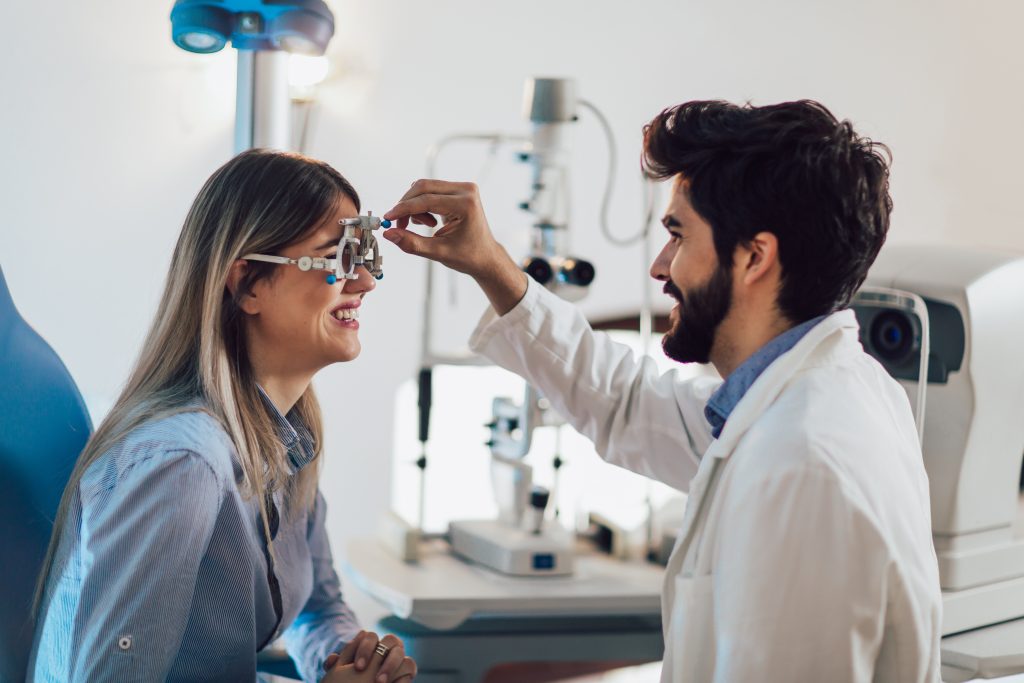
Related FAQs
Wearing glasses or contacts can indeed affect dry eye symptoms, but the impact varies. Glasses can help shield the eyes from environmental factors that exacerbate dry eye, such as wind or air conditioning. On the other hand, contact lenses can sometimes worsen dry eye symptoms by absorbing tear moisture or by causing irritation. Certain types of contact lenses are designed to be more breathable and retain moisture better, which may be suitable for people with dry eyes. It’s crucial to discuss with an eye care professional to find the most appropriate type of contact lens or glasses. Proper care and hygiene when using contacts, along with regular breaks from screen use, can help minimize dry eye symptoms.
Dry eye syndrome can be both a temporary condition and a chronic disease, depending on its cause and severity. Environmental factors or certain life situations, such as screen use or air travel can cause temporary dry eye. Chronic dry eye, on the other hand, may result from systemic diseases, medication side effects, or age-related changes in tear production. Management and treatment can alleviate symptoms, but chronic dry eye often requires ongoing therapy. It’s important to consult with an eye care professional for an accurate diagnosis and treatment plan. Understanding the underlying cause is key to determining whether dry eye syndrome will be a temporary issue or a chronic condition.
Yes, some specific exercises and therapies can help relieve dry eye symptoms. Blinking exercises, for example, can help improve meibomian gland function and tear film stability. Warm compresses applied to the eyes can also stimulate tear production and release oils from the glands in the eyelids. Gentle eyelid massages can help spread the oils evenly across the eye surface, reducing dryness. Using a humidifier to add moisture to the air and taking regular breaks to rest the eyes during screen time can also be beneficial. Newer technologies such as IPL (Intense Pulsed Light) and RF (Radio Frequency) are also becoming available. Consulting with an eye care professional for personalized advice on exercises and therapies is recommended.
Sleep plays a crucial role in managing dry eye syndrome. Poor sleep can lead to insufficient eye lubrication and worsening dry eye symptoms. During sleep, the eyes rejuvenate and produce the moisture needed for the next day. Good sleep hygiene practices can help ensure the eyes are well-rested and hydrated. It’s also important to avoid sleeping with any airflow directly hitting the face, as this can dry out the eyes. Establishing a regular, restful sleep schedule can significantly improve dry eye symptoms.
Indeed, some medications can exacerbate dry eye symptoms. Diuretics, antihistamines, antidepressants, and some blood pressure medications are known to reduce tear production or alter tear composition. It’s important to review any current medications with a healthcare provider to determine if they could be contributing to dry eye symptoms. Sometimes, alternative medications with fewer dry eye side effects can be prescribed. Always consult with a healthcare professional before making changes to medication regimens. Patients should also stay hydrated and consider using artificial tears if taking medications known to cause dryness.
Yes, it is quite common for dry eye symptoms to worsen in certain weather conditions. Dry, windy, or smoky environments can lead to increased tear evaporation, exacerbating symptoms. Conversely, high humidity can sometimes alleviate dry eye symptoms because the air is more saturated with moisture. Cold weather, especially during winter when indoor heaters are used, can also dry out the eyes. It’s advisable to use humidifiers in such conditions to maintain indoor humidity levels. Wearing wraparound glasses or protective eyewear outdoors can help shield eyes from harsh conditions.
West Edmonton Vision Clinic
Visit our vision clinic in central West Edmonton for comprehensive eye exams, contact lens fittings, glasses, and more. LL Eyecare Centre is dedicated to providing the highest quality optometric services and products to our patients. Our team of experienced optometrists is here to help you with all of your eye care needs. Schedule an appointment today!
Clinic Hours
Monday Closed
Tuesday 9:00-5:00
Wednesday 9:00-5:00
Thursday 9:00-5:00
Friday 9:00-5:00
Saturday 9:00-2:00
Closed Sunday / Holidays
